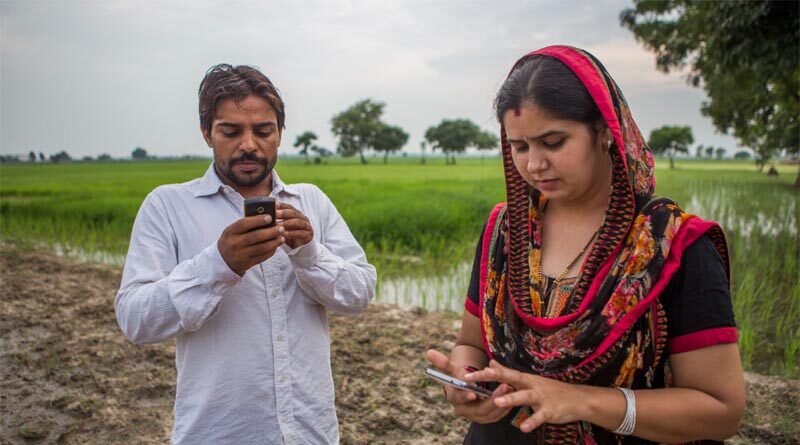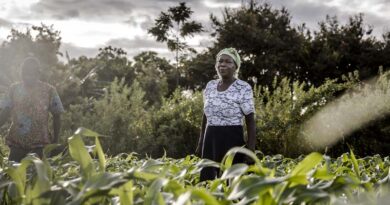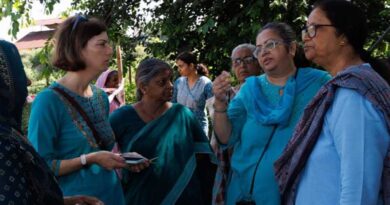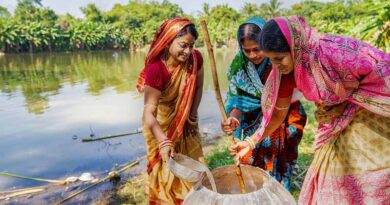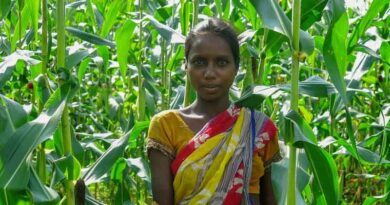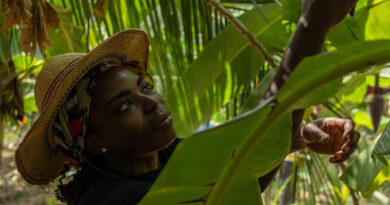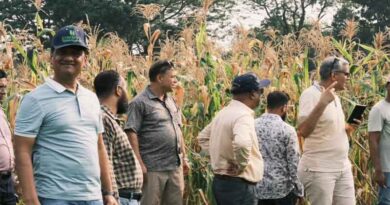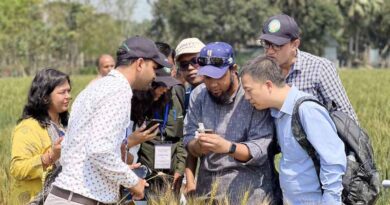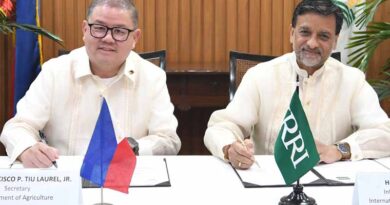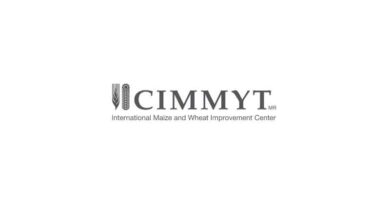How Gender Equality Can Transform Food Systems and Protect Us From Climate Change Disasters
14 February 2022, New Delhi: Enabling women to be equal partners with men in the development and use of agricultural technologies and land and water resources, in household production and consumption decisions, and in the formulation of policies and institutions is essential to successfully transform our food systems and create climate resilience for all. However, gender inequalities remain deeply engrained throughout these domains.
Across our food systems, unwritten rules and norms have put men in charge of decisions and livelihoods, while many women carry disproportionate labor and care burdens. This inequality has been further entrenched by climate and weather shocks, the COVID-19 pandemic, political dysfunction, and civil unrest and displacement.
The intensifying impacts of climate change disproportionately harm women and expose social and gender inequalities across the globe. Women have less access to resources, information, and early-warning systems. They are less able to adapt to climate change than men and are therefore mistakenly stereotyped as victims of climate change impacts, while the structural roots of gender inequalities that cause vulnerability are ignored. The World Economic Forum’s Global Gender Gap Report 2021 estimated that the impact of the COVID-19 pandemic increased the time required to close the global gender gap by a generation, from 99.5 years to 135.6 years.[1]
Also Read: Kocide 3000 launched by Bharat Certis AgriScience in Maharashtra
We know that upending the unwritten rules that exclude women from equal and fair participation in food systems can boost resilience among women and that supporting women to adapt to climate change can lead to greater climate resilience for entire communities. Research by CGIAR and others on the gender dimensions of poverty, malnutrition, and food insecurity has shown that progress will stall without significant advancement in bolstering gender equality.
Making climate solutions work for women
Evidence gaps on gender equality’s scale, causes, and solutions are one reason for our lack of progress. For example, technological innovations targeting climate resilience, such as stress-tolerant crops or weather index insurance, are not adequately designed or bundled with social innovations that overcome barriers to their adoption by women. Due to their complexity, they are also not scaled at the pace or volume required to achieve real change.
By the same token, social protection programs — including national programs targeting cash and food transfers to the poor — reach billions of resource-poor women globally, but they are often not designed to address the constraints faced by women or with a climate lens. Evidence that these programs help women build savings and assets suggest the programs also have substantial untapped potential to support women in mitigating the effects of climate change, but more research is needed.
Finally, the institutions in which decisions are made and implemented tend to significantly disfavor women, perpetuating their lack of access to the resources and services that support resilience to climate change.
Initial endeavors to put gender research at the heart of CGIAR raised awareness of the importance of the gender dimensions of technological, behavioral, and social innovations. But there is still an undersupply of strategic and transformative gender research that could otherwise enable women — alongside their husbands, partners, and communities — to adapt to climate change disasters.
Gender and social equality for climate resilience
CGIAR is proposing a new Initiative, Harnessing Gender and Social Equality for Resilience in Agrifood Systems (HER+), that aims to foster climate-resilient food systems by identifying effective innovations to overcome restrictive social norms, promote women’s access to technologies and resources, and ensure that policies bolster gender and social equality.
No other global consortium has the breadth and depth of expertise to tackle gender inequalities and boost climate resilience. CGIAR is uniquely placed to lead the HER+ Initiative in collaboration with partners from Ethiopia, Mali, Nigeria, Bangladesh, and India — five core countries for HER+ research that face significant climate challenges and where substantial diversity in gender norms exist.
The Initiative will set out to address four main dimensions of gender inequality in food systems, namely women’s lack of agency to set their own goals and make their own decisions; women’s lack of access to and control over resources; restrictive social norms that discriminate based on gender; and policies that fail to include and benefit women.
Key aspects of the HER+ Initiative include:
- Investigating how to combine — or bundle — socio-technological innovations that can make women both partners and drivers of climate change solutions. For example, this work will build on past efforts to make stress-tolerant varieties of crops and their seed accessible to women, and to provide women access to climate information and digital tools.
- Engaging with social protection programs to understand how improved program design can support women to mitigate and adapt to effects of climate change and build resilience.
- Addressing underlying gender barriers by engaging women and men together in gender-transformative approaches to tackle inequalities. In particular, these approaches will seek to shift constraining gender norms, a critical leverage point for enhancing gender equality. CGIAR researchers will build on existing expertise on gender-transformative approaches and collaborate with partners to identify ways to overcome the normative constraints that limit women’s capacities to build resilience to climate change challenges.
- Finding ways to boost women’s voices in food system governance spaces, and identifying, testing, and scaling food system policies that effectively support women’s resilience to climate change.
Women as drivers of global resilience
A climate change solution that does not work for women is not a climate change solution. Acknowledging this is a first step toward building resilient food systems.
With the HER+ Initiative, CGIAR will fill a critical evidence gap by identifying and testing climate solutions that do work for women. This will serve as a case study that can deliver proof of best practices and lessons learned for CGIAR and our research-for-development partners. In this way, HER+ will help generate the evidence needed to enable women to assume their rightful roles as drivers of resilience in global food systems.
This initiative will complement the CGIAR GENDER Platform, which delivers expertise and leadership to maximize the impact of CGIAR’s research on gender equality, youth, and social inclusion, and it will both learn from and inform gender research carried out by other Initiatives within CGIAR’s portfolio. In combination, these efforts represent a substantial investment by CGIAR in rigorous, practical, and transformative gender research to foster new programs, policies, and investments that strengthen gender equality in the global food system.

